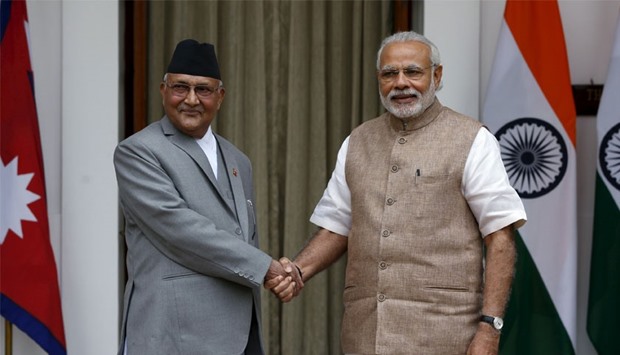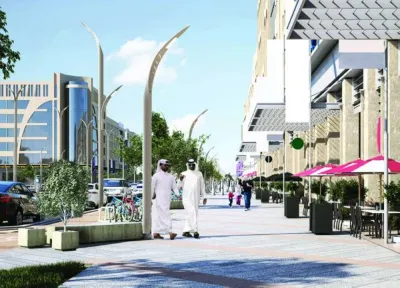Prime Minister K.P. Oli visited New Delhi for talks with his Indian counterpart Narendra Modi after a months-long freeze in relations triggered by the grievances of plains dwellers in southern Nepal who have close historical ties to India.
Nepal, which moved from absolute to constitutional monarchy in 1990, made changes to its constitution to ensure greater participation of the Madhesi community in parliament.
But community leaders said the amendments failed to address their central fear that provincial borders would be redrawn in a way that would divide them.
"Our prime minister appreciated the progress made towards consolidation of constitutional democracy in Nepal," Indian Foreign Secretary Subrahmanyan Jaishankar told a news briefing.
A four-month border blockade by the Madhesis ended only after amendments to the constitution that sought to address their concerns about representation. India welcomed the amendments, paving the way for Oli's visit.
"After decades of struggle, the framing and promulgation of Nepal's constitution is an important achievement," Modi told reporters after meeting Oli, adding its success would depend on consensus and dialogue.
Modi and Oli inaugurated a power transmission line between India and Nepal and signed a framework agreement for reconstruction work in areas affected by last year's earthquakes that killed nearly 9,000 people.
India had offered $1 billion in aid to Nepal, but reconstruction efforts have been slow to get started due in part to political turmoil and food and fuel shortages in the isolated state.



